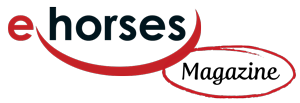Buying your first horse: essential considerations
Many people dream of buying their own horse. It’s an exciting prospect but you need to view your needs objectively if it’s not going to turn from a dream to a nightmare! We’ll list some essential questions to ask yourself, such as what’s involved in keeping a horse? What equipment will I need at first?
Buying a horse – the basics
Your chosen horse should be laid-back and experienced, but still young enough to learn. It should already be well-schooled, but you want to train it yourself as well. It will be forward-going in all paces yet also a novice ride. It should always be fit, healthy and sound. In the real world, there’d be a lot of competition for this horse, because it’s everyone’s dream horse made real! The reality is that the ideal horse doesn’t exist, but there is a horse that’s right for you.
Buying a horse is just the start
Buying a horse and its essential equipment (well-fitting saddle, bridle and halter a minimum) is expensive and the costs don’t stop there. Unless you have your own land, you’ll need to rent a stable and grazing. Your horse will need a visit from the farrier every few weeks even if not shod. There will be annual visits from the vet for injections plus call-outs for emergencies – hopefully not too many! There will be visits from the equine dentist and saddler and many other regular horse care costs. Insurance is also an essential.
Your regular outgoings when having a horse
Barn or livery rental: these monthly costs depend on the location and system chosen. Keeping a horse at grass is cheapest of all. Estimate a minimum of €100 on a do-it-yourself (DIY) basis up to €800 or more for a fully inclusive horse care package in a desirable location within driving distance of a city.
Farrier: footcare will be required every 6 to 8 weeks. For barefoot (unshod) horses, estimate €30 – €50 per trim. Shoeing horses will cost €70-200 per visit. Remedial or specialist shoeing can cost more.
Veterinarian visits: some horse owners have an annual vet check. Horses will need vaccinating, the most important being tetanus (approximately €35) every 1 to 2 years and equine influenza (approximately €40 per visit, usually available as a programme of shots initially). Due to major ‘flu outbreaks, some vets are recommending these every 6 months now. Other vaccinations include for equine herpes, recommended every 6 months, and an annual shot for rabies in appropriate regions.
Saddler: saddles should be checked annually for damage and restuffed if required. Costs vary depending on whether the saddle is under warranty. Saddles usually need restuffing every few years.
Equine dentist: horses are usually checked at one to two-year intervals by a specialist equine dentist. Estimate around €200 per visit.
As well as these regular costs, there will be horse feed, horse care products and perhaps visits from additional specialists such as osteopaths and physiotherapists. Some of the regular costs can be reduced by scheduling vaccination visits with other horse owners.
Remember these are just the essentials and it’s easy to see how monthly expenses quickly reach €800. Estimate above your needs and if there’s money left at the month-end, you can treat yourself – or your horse! It makes sense to keep a separate savings account to cover your costs.
Don’t avoid the hard questions
Why are you buying a horse? What do you intend to do together? There’s a lot of work in keeping a horse. If you just enjoy riding, then regular visits to a riding school may be better. If buying, choose the right horse for the job. If you want to hack or trail ride, you don’t need a Thoroughbred. If you want to do dressage seriously, a Shetland probably won’t do!
You need to be realistic about your needs. What’s right for one rider is not right for another. You also need to be realistic about your riding level. There’s a saying, “green on green leads to black and blue”. An inexperienced rider should always select an experienced horse for their first purchase.
Where’s the best place to buy my horse: dealer, breeder or privately?
Of course, there are fraudsters everywhere and individuals, as well as dealers, can swindle people. The reverse is also true: dealers can offer quality horses as well as breeders and private homes. At ehorses, there is always a wide selection of horses for sale from experienced dealers, breeders and private homes.
